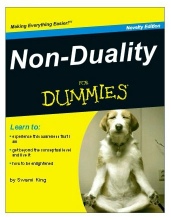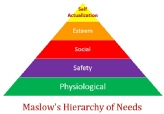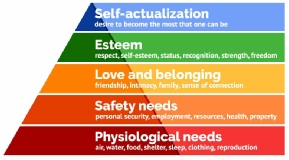




 NEXT
NEXT
 BACK
BACK

Philosophical musings on Quanta & Qualia; Materialism & Spiritualism; Science & Religion; Pragmatism & Idealism, etc.


 Forum
Forum

 Recent Posts
Recent Posts
Post 18. 2/25/2018 continued . . .
Single Substance Spirituality
Non-dualism for Deists
Early philosophers and sages — while exploring their own minds via reason or meditation — discovered that our childish tendency to construct simplistic models of physical reality in terms of black-or-white, this-or-that, us-versus-them, body/soul, either/or categories can be misleading or harmful when applied to the wrong context. Such handy dichotomies are artificial oversimplifications of the complex & continuous world out there, and they only apply to very specific subsets of the whole range of reality. When used inappropriately, they lead to logical category errors. Consequently, those deep thinkers developed various versions of the notion of holism5 and non-dualism6. And a more recent development of the same idea is what I call the BothAnd principle.
One sense of “non-dual” is the opposite of Cartesian dualism, in which body & soul are completely different kinds of stuff. But if everything is made of Mind, or Consciousness, or Information — as assumed in Panpsychism — then Mind is simply the natural-but-immaterial function of the material Brain. Quantum theory is a materialistic version of non-duality. It views the world as made of continuous mathematical Fields of potential. Within their defining field, pairs of quantum particles may become entangled, and act as one, or vice-versa, fluid waves may also be discrete particles . Unfortunately, such BothAnd constructs are difficult for our matter-sensing brains to imagine.
Because he couldn’t imagine how carnal bodies could produce immaterial minds, Descartes in desperation sliced that Gordion Knot7 into corporal and spiritual halves : body & soul. Likewise, S. J. Gould’s dualistic concept of “non-overlapping magistera”, proposed that incompatible “truths” be limited to their proper sphere of application. He assumed that Science would focus on producing mundane material goods, while Religion would be content with sublime spiritual values. Historically though, religious functionaries have claimed authority over scientific facts, and tried to replace offending theories with scriptural dogma and occult mysteries. Meanwhile, the scope of secular Science has expanded into the religious domain, and often treads on faithful toes. As a result, a modern science-informed worldview can no longer justify an absolute distinction between Body & Soul, or Religion & Science. Instead, a unified conception is more realitistic, and warrants a holistic BothAnd approach to the philosophical cop-out of dualism.
A Monistic8 worldview doesn't require that Deists reject the mundane reality all around them, and spend all their days navel gazing. It's enough to simply keep in the back of your mind the truism that "appearances can be deceiving", so we need to be careful not to be led astray by beguiling appeals to the eye, and pleasures of the flesh. Then, having developed your Self/Soul into a virtuous character9, you can confidently conduct your life, without fear of falling into the error of dualism. Perhaps even the perennial adversaries, Science & Religion, can be merged into a single truth-seeking venture. Sam Harris, in a TED Talk 7 years ago, asserted that, in principle, science can eventually answer moral questions. He believes that, given time, science will converge upon objective truths, even for subjective issues. In the meantime, we need to be tolerant of differing opinions on questions of value, such as morality. And we need to avoid the pretense of privileged access to occult truths.
End of Post 18
5. Holism :
the theory that parts of a whole are in intimate interconnection, such that they cannot exist independently of the whole, or cannot be understood without reference to the whole, which is thus regarded as greater than the sum of its parts.
6. Nondualism :
In spirituality, nondualism, also called non-duality, means "not two" or "one undivided without a second". Nondualism primarily refers to a mature state of consciousness, in which the dichotomy of I/other is 'transcended', and awareness is described as 'centerless' and 'without dichotomies'.
____Wiki
7. Gordion Knot :
a problem that can’t be solved with reason, so brute force is applied.
8. Monistic :
Many things, one substance.
Multiple manifestations of a single Mind. All is G*D. Body/Soul, same stuff. Matter = Energy = Information = Mind.
9. Virtuous Character :
Virtue is moral excellence. The four classic cardinal virtues are Temperance, Prudence, Courage, and Justice. Christianity adds three theological virtues of Faith, Hope and Love. To those I would include the pragmatic scientific virtue of Doubt, an aspect of prudence, to offset the irrational effects of blind faith, vain hope, and carnal lust.
Spiritual Needs :
In Maslow’s hierarchy of needs, self-actualization is the top of the pyramid, above physical (food, water), psychological (safety), and social requirements (love, esteem). To satisfy our spiritual needs, we turn inward for self-discovery, self-reflection, self-realization and self-exploration. The self is the soul, and can only be understood as an integral part of the All, of G*D.
Unity from Plurality :
The human brain is com-posed of two halves, yet it generates a single unified perspective of the outside world. That unitary worldview is what we call Self/Soul.
Monistic Materialism :
Standard scientific materialism begins with the axiom that everything is physical, hence all aspects of reality boil down to matter, and its alter-ego energy. But, if you equate Energy with Information, you can see that both brains and minds are merely specialized forms of generic energy : the power to cause change, to enform. Or EnFormAction, as I like to call it.









 NEXT
NEXT
 BACK
BACK




 Recent Posts
Recent Posts



